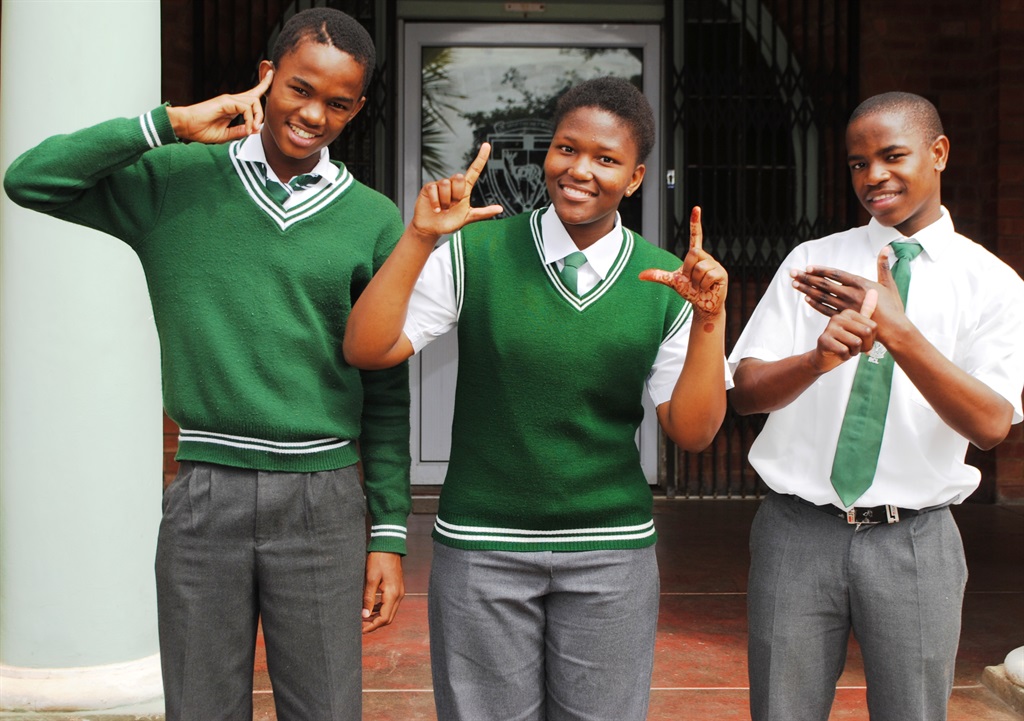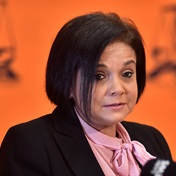
Complicit in exclusion. It was the title of a 2015 Human Rights Watch report on South Africa’s failure to guarantee inclusive education for children with disabilities, and the figures were shocking.
One of the revelations was that a figure of about 597 000 South African children with disabilities were not attending school in 2015.
In response to the findings, the department of basic education at the time said that the figure, which was provided to Human Rights Watch by the department itself, was “an attempt to sensationalise the very real and very serious challenges faced by learners with special needs”.
“Two different sections of this progress report carefully note that tackling access to education for 597 953 children with disabilities who could be out of school, and up to 829 474 children with disabilities who are of school-going age, would be more efficient and cost-effective if the government invested in and prioritised inclusive education, rather than building more special schools,” the report said.
Ongoing efforts to highlight this issue have resulted in a report that was compiled by a range of high-level advocacy groups within the inclusive education and disability rights space, which was released in December 2016 titled “Right to education for children with disabilities alliance”.
The report was an alternative report to the United Nations Committee on the Rights of Persons with Disabilities, as a response to South Africa’s Baseline Country Report of March 2013.
The drafting process of the report began in June 2016, but “organisations involved have been researching and working in this space for many years and the authors drew on findings from sector research reports”, Robyn Beere, Director of Inclusive Education South Africa told City Press.
The report highlighted some of the following issues:
• Children remain on waiting lists for special schools for up to five years;
• Children with special needs do not end up going to school as a result of the state’s failure to make provisions for the learners by providing additional classroom support;
• Protective measures in the Children’s Act do not apply to special school as they are not categorised as “child and youth centres”, and as a result there is a high incidence of abuse; and
• In 2012, the Curriculum Assessment Policy Statements was introduced, yet by 2015 17 out of 22 special schools for visually impaired learners reported not having received a single textbook, workbook or teacher’s guide in braille.
Beere said that the reality in South Africa is that there are not enough special schools to accommodate all children with disabilities.
“There are only a small number of special schools with a limited capacity. Too many children are referred to special schools. Admission to special schools must be reserved for learners with high level support needs and not for learners who could be accommodated with support in ordinary public schools,” she said.
Some of the challenges which children with disabilities face, according to Bronwen Jones, Founder of Johannesburg School for Blind, Low Vision and Multiple Disability Children and Children of Fire, include the fact that from the onset, they face prejudice.
“Whether children are placed in a special needs school or included in a mainstream school, first they face prejudice. Then they face inadequate facilities, inadequate knowledge, inadequate staff training which results in inadequate teaching,” Jones said.
She said the problem was that children were grouped together on the basis of only one disability, such as lack of sight, which could be an effect as a result of being HIV positive, being born prematurely or even having contracted rubella from their mother while the mother was still pregnant, after the mother contracted German measles.
“They are also put together with low vision children even though the teaching methods for low-vision children should be generally different,” Jones said.
She said that based on the current trajectory, there is not enough being done by government to prioritise the needs of disabled children.
“The least-able should get the most focus, so that the children can grow up to contribute to society rather than be a burden to it,” she said. In order for this to happen, Jones said that early intervention is required as well as other means of resources, such as that of transportation needs.
“Try taking a child in a wheelchair on a Johannesburg combi taxi. They do not want to stop and they will charge an extra fare for the wheelchair. For a parent to take that child to school is three fares there and one fare back. How does that leave the parent the time to get to and from a job before having to collect the child from school again?” she asked.
Jones added that there are no disabled-friendly public toilets on the route, another problem stifling the basic needs of disabled children and adults alike.
Jones pointed out the stark reality in which many disabled children are forced to live in, given the current landscape, due to the lack of adequate budget allocation towards this need.
“A Perkins Brailler upon which a blind person types, costs R13 000, but only very rich blind children have their own usually, whereas sighted children who need pencils always have pencils, even if they live in shacks, because pencils are affordable,” she said.
A change in attitude might make a difference, Jones believes.
City Press asked the department of basic education for an update on the progress that has been made since the report was released in 2015.
“There is currently work being done within the department which we are currently not at liberty to make public. However we are at liberty to provide you with the information contained in the presentation,” Terence Khala, media relations officer at the department, told City Press.
The presentation was provided by the portfolio committee of the department of education in March last year, titled “Progress Report on the Implementation of White Paper 6: A response to Human Rights Watch and Section 27 reports”.
White Paper 6, adopted in 2001, is the country’s 20-year inclusive education policy framework.
Criticism towards this framework has been highlighted in the alliance report, saying that “the implementation of the white paper is considered to be wholly insufficient” and the revision of the framework has not yet happened.
Although the department has taken steps towards tackling the gap that exists within the education system towards disabled children, such as the training of 250 foundation phase and Grade 9 teachers and deaf teaching assistants in October 2014 and 287 teachers and officials were trained in South African South Language during 2015-2016 to improve competency in signing, there is still much that needs to be done in order to tackle the current problem at hand according to Beere.
Beere said that the fact that almost 600 000 children are out of school is a crisis.
“Their right to education is being denied. The fact that the quality of education is so poor for children with disabilities who are in school is as much of a crisis,” she said.
| |||||||||||||
| |||||||||||||




 Publications
Publications
 Partners
Partners








